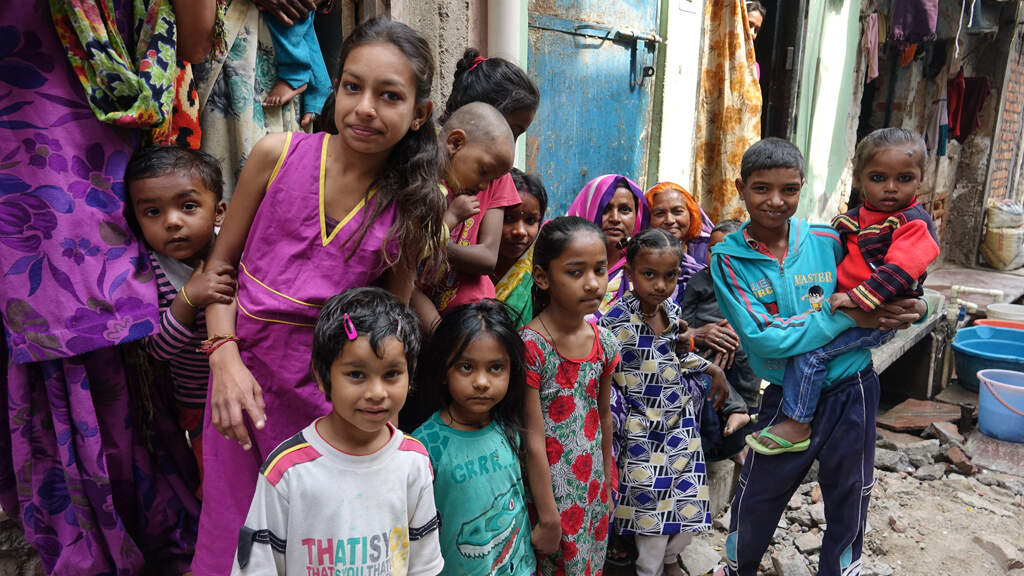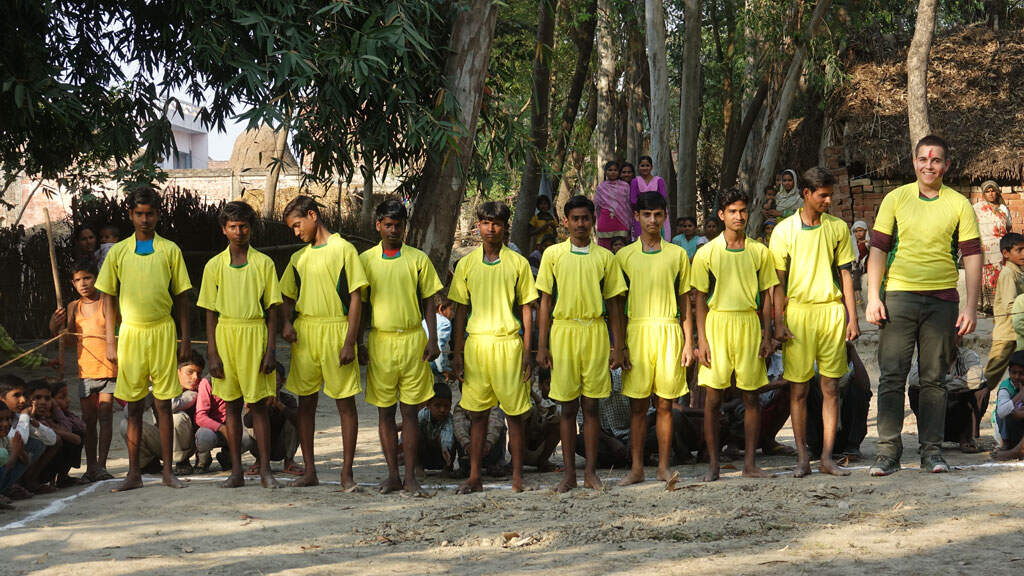Welcomed as friends
Since 2005, DACHSER has partnered with NGO terre des hommes to protect children’s rights, promote education, and preserve natural resources. As part of a youth exchange program, five DACHSER trainees recently visited project villages in the northern Indian state of Uttar Pradesh. This photo reportage summarizes their impressions of this unique experience.

It was a hard night, in every sense, because all we had to sleep on was a simple plank bed normally occupied by our host, Vibin. Nonetheless, we were overwhelmed by the hospitality we received from Vibin and his family, especially when we found out that they had given us almost all the cushions and bedcovers they owned to make our night more comfortable.
We were to encounter this kind of generosity time and again during our two-week visit: hospitality has top priority in India. The people in the project villages shared what little they had with us. They greeted us with flower garlands and gifts, served us meals fit for a king, and gave up their own beds (or what serve as beds) for us to sleep in. And they entertained us with music and theater performances they’d been rehearsing for months. That’s simply the way they do things here. We felt very privileged, but it also gave us pause for thought.
Education is the key to a better future
Vibin lives in Mangolpuri, one of the Indian capital’s biggest slum districts. People from rural villages all over India started settling here 40 years ago, seeking a better life in the city. Vibin has come a long way by local standards, thanks to hard work and a willingness to learn. He teaches computer skills at the e-learning center run by the Dr. A.V. Baliga Trust, a local project partner that DACHSER has been supporting since 2015. Here, kids from the slums can learn all about computing, to improve their chances of finding a job, and even obtain formal qualifications, for example by training as a web designer. For these youngsters, this alternative educational path represents an opportunity to earn a decent living, with a regular income and a modest rise in social status.
Few children in Mangolpuri receive a full education, especially girls. Poverty, absent parents, and dangerous routes to school are the most common reasons, as we discovered when we visited one of the local education centers.
Here, even the youngest pupils receive special tutoring. They are unable to keep up with their lessons in school, and cannot expect any support from their parents. Nonetheless, the youngsters we spoke with in Mangolpuri are full of energy and optimism. “I want to be an independent woman capable of earning her own living,” proudly declares 21-year-old Sonu, whom we met at the Dr. A.V. Baliga e-learning center.

Sport brings people together - Hariharpur Village, near Lucknow, Uttar Pradesh
The distorted tones of the Indian national anthem ring out from two ancient loudspeakers, as the two teams face one another on a rough, dusty playing field. Their uniforms bear the DACHSER colors of blue and yellow, and one of the players in each team stands out, not least on account of their stature: Johannes and Cem Davis have been invited to take part in India’s traditional sport of kabaddi, a unique combination of tag, wrestling, and rugby (but without the ball).
It’s going to hurt, that much is obvious, because the young Indians are used to competing on the stony playing field with vigor and great enthusiasm—and they pull no punches. The game is apparently the big event of the year, given the 200 or so spectators gathered around the perimeter, including many children.
Throughout our time in India, we were accompanied by sport, games, and music: kabaddi, kho kho (a fast-moving game of tag without the wrestling element), cricket, soccer, and our contribution of dodgeball. Major physical effort was required almost every day.
This is all the better because team sports eradicate all differences and transcend boundaries between people of different origins. They create a spirit of unity and a relaxed atmosphere that spilled over into our discussions with school pupils and youth groups. The same applies to music, because song and dance are an indispensable part of the Indian culture; Bollywood hasn’t lied. As it happened, our visit coincided with the carnival season, allowing us to show the Indians that we, too, like to sing, although perhaps not as well as our hosts. This was our way of showing our appreciation of their open-mindedness, friendliness, and patience, which we tried to emulate, and we were glad if we could also entertain them as they’d entertained us.
